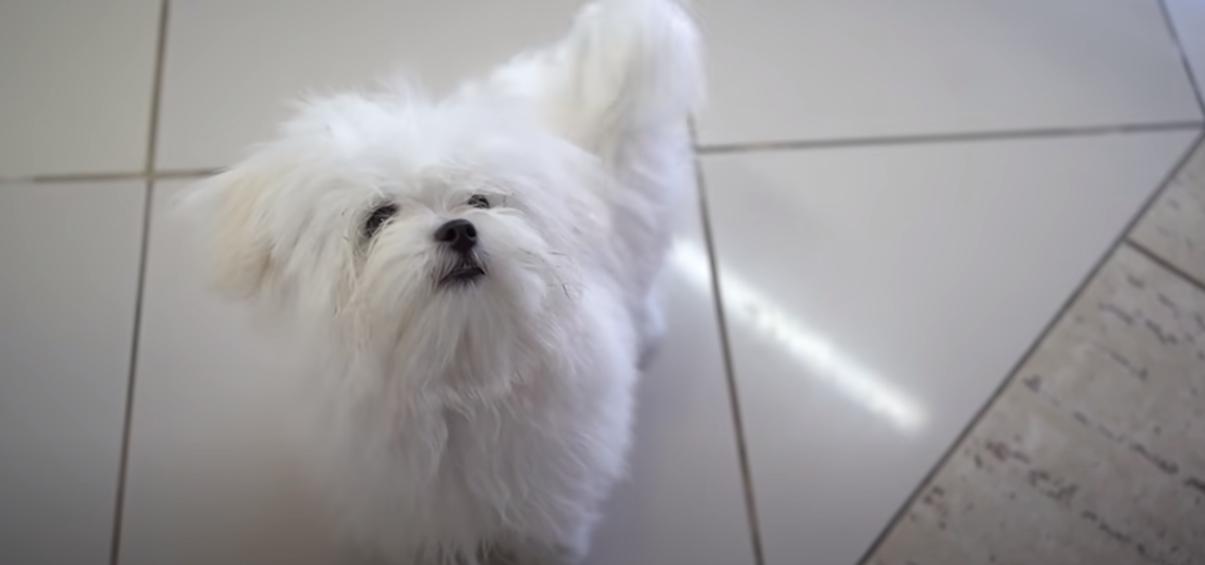Why Do Maltese Eat Their Own Poop? (What You Should Know)
Key Takeaways
- A Maltese may eat their own poop when they are hungry and perceive it as a food source.
- Dogs may resort to pica (eating non-food items) when they are stressed.
Have you ever wondered why your Maltese dog may be eating their own poop? While it may seem gross to us humans, there are actually a few reasons why your furry friend may be engaging in this behavior.
One reason why your Maltese may be eating their own poop is due to hunger or stress. When a dog is stressed, they may turn to non-food items like feces as a way to cope. This can become a continuous cycle for the Maltese as they continue to eat their own feces out of stress, which then leads to more stress because they’re not getting the nutrients they need from food. Additionally, if your Maltese is not being fed enough, they may start eating their own poop out of desperation for food.
Another possibility is pica, which is when an animal eats non-food items due to nutritional deficiencies or boredom. If your Maltese dog is consuming their own feces on a regular basis, it’s important to talk to your vet about possible health problems that could be causing this behavior.

What are some potential reasons why a Maltese might eat its own poop?
When it comes to our furry little friends, there are some things that we just don’t understand. One of those things is why a Maltese might eat its own poop. While it may seem disgusting to us, there could be some potential reasons behind this behavior.
One possible reason for a Maltese eating its own poop could be due to nutritional deficiencies. If your pet isn’t getting the proper nutrients from its food, it may turn to other sources, such as feces, in order to get what it needs. Stress can also be a factor in this behavior. If your Maltese is feeling anxious or stressed, it may turn to coprophagy as a way to self-soothe. Boredom is another potential reason why your pet might engage in this behavior. If your Maltese doesn’t have enough stimulation throughout the day, it may start looking for ways to entertain itself – and eating feces can certainly qualify as entertainment!
It’s important to note that sometimes owner reinforcement of behavior can unintentionally lead to coprophagy in pets. For example, if you clean up after your dog without addressing the underlying behavioral issue, he may think that you’re rewarding him for going potty inside and continue doing so in the future.
Is eating poop harmful to Maltese dogs?
Maltese dogs have a reputation for being finicky eaters, but sometimes they can’t help but indulge in a little bit of foul-smelling fare. While eating their own poop is harmless to them, consuming stool from other animals can cause health problems if the waste is contaminated with parasites, viruses, or toxins.
For the most part, Maltese dogs are healthy little creatures. But like all animals, they are susceptible to certain diseases and conditions that can be passed on through contaminated feces. That’s why it’s important for pet owners to be aware of the potential hazards of letting their dog consume any type of waste – even if it’s just a small amount.
While Malta may not have many cases of harmful pathogens in its soil or water, there’s always the possibility that your dog could come into contact with something dangerous while out on a walk or at the park. So if you see your Maltese snacking on some suspicious looking matter, it’s best to err on the side of caution and take them to the vet for a check-up.
How can you stop a Maltese from eating its own feces?
It’s not uncommon for dogs to eat their own feces, but it can be a gross and unsanitary habit. If you have a Maltese that’s eating its own poop, there are some things you can do to deter this behavior.
First, if you catch your dog in the act of eating feces, try to distract them with a toy or treat. Then, pick up the feces right away so they don’t have a chance to consume it all.
You can also add meat tenderizer, canned pumpkin, or another deterrent to your dog’s food. This will make the stool taste unpleasant and discourage your dog from consuming it. Finally, make sure your dog has plenty of toys and chew bones available so they’re less likely to turn to eating feces out of boredom or hunger.
Could there be any benefits to a Maltese eating its own poop?
Maltese are known for their finicky eating habits, and one of the most common questions owners have is whether or not there could be any benefits to their dog eating its own poop. While it may seem gross to us, Green tripe is actually high in digestive enzymes and probiotics, both of which can be beneficial to a dog’s health. In addition, if your Maltese has a sensitive stomach, eating its own poop can help transition them to a new diet without any gastrointestinal issues.
Are there any other health risks associated with a dog eating its own feces?
While it may not be the most appetizing habit, there is no harm in a dog eating its own feces. In fact, it can actually be beneficial for them as they are able to consume any nutrients that they may have missed the first time around. However, if a dog consumes feces from another animal, there could be some health risks involved. This is because the stool could be contaminated with parasites, viruses, or toxins. If your dog does eat the feces of another animal, it is important to keep an eye on them and monitor their health closely.

What does this behavior say about the overall health of the Maltese dog population?
Maltese dogs are known for their tolerance and patience with childrens’ behavior, and overall family-friendly nature. However, recent studies have shown that the Maltese dog population is not as healthy as they appear to be. In fact, many Maltese dogs suffer from a variety of health problems that can be attributed to their eating habits.
One of the most common health problems in Maltese dogs is obesity. This is often caused by owners overfeeding their dogs or feeding them high-calorie foods. Obesity can lead to a number of other health problems, including joint pain, respiratory difficulties, and diabetes.
Another common health problem in Maltese dogs is dental disease. This is usually caused by plaque buildup on the teeth due to improper dental care. Dental disease can cause pain and difficulty chewing food, as well as bad breath.
Finally, Maltese dogs are also prone to skin problems such as allergies and hot spots. These problems are often caused by poor grooming habits or an allergic reaction to certain ingredients in dog food or shampoos. If not treated properly, skin problems can become quite painful for your dog and may even lead to hair loss.
Is there anything else that could be causing this strange behavior in Maltese dogs?
Maltese dogs are susceptible to the same bacterial and viral infections as all other dogs. However, there are some potential causes of strange behavior in Maltese dogs that are worth mentioning. Infections such as parvo, rabies, and distemper can all cause strange behaviors in Maltese dogs. In addition, Maltese dogs may also display odd behaviors if they have an underlying medical condition such as hypoglycemia or epilepsy. If your Maltese dog is exhibiting any strange behaviors, it is important to have him checked out by a veterinarian to rule out any possible medical causes.
Have experts found any definitive answers as to why some Maltese dogs engage in this behavior while others do not?
Maltese dogs are known for their small size and cute, cuddly appearance. But did you know that some Maltese dogs also have a reputation for being demanding and pushy? That’s because successful show dogs must be willing to perform on command – and the best show dogs are usually those that were bred and raised with the intention of being shown.
So why do some Maltese dogs engage in this behavior while others do not? Experts believe it has to do with genetics, environment, and early socialization. Dogs that come from lines of successful show dogs are more likely to inherit the traits necessary for success in the ring. And puppies that are exposed to a variety of people, places, and experiences from an early age are more likely to be confident and outgoing – both key qualities for a successful show dog.
My Final Thought
I have a Maltese dog and I’ve noticed that she will sometimes eat her own poop. I’m not sure why she does it, but it could be because she’s hungry and sees it as a food source. Or, it could be that she’s under stress and engaging in pica (eating non-food items). Either way, it’s something to keep an eye on.
